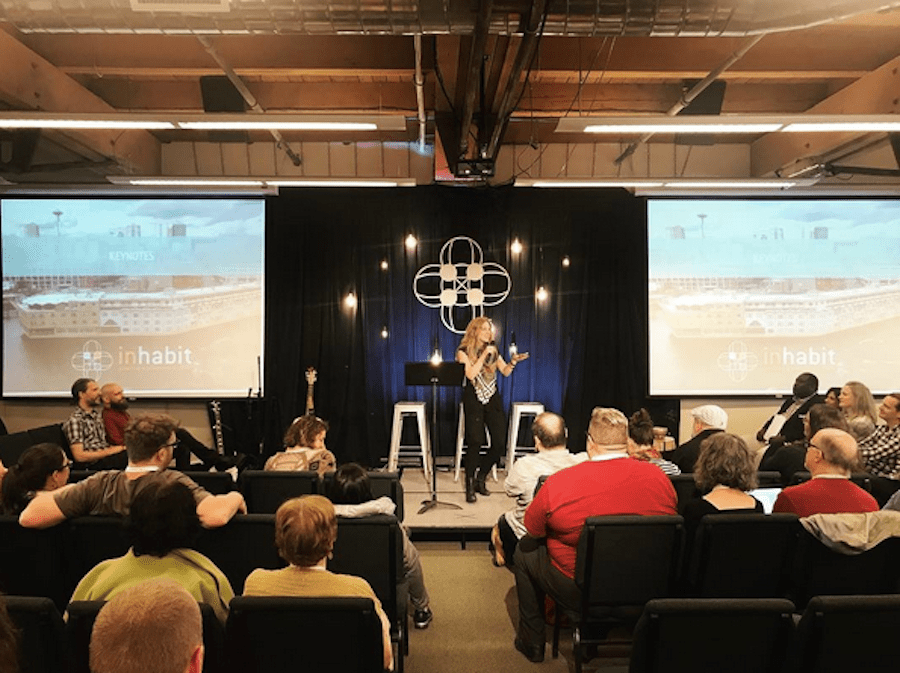Better together
When you grow up in a religious family, unless you have parents who actively model and discuss otherwise, chances are you’ll internalize the implicit and sometimes explicit message that men are better suited for leadership, women should be submissive, and all will be well. This is only reinforced by popular culture, but in a religious context it’s also tied to salvation, spiritual maturity, and obedience. To not fall in line means risking discipline, being labeled a heretic, or being ousted from community.
I had consumed this message so completely that when I got to college I said to my adviser and history professor that if two books were written on a subject, one by a man and one by a woman, I would always choose the one written by a man. I thought this was the correct answer and I was somehow righteous for having this enlightened opinion, but my professor was taken aback. I’ll never forget his shock and his one word response: “Why?”
Looking back, that interaction was the first time I remember anyone questioning my internalized misogyny, and it was the starting point of a whole new trajectory. It has taken years of examining previously held beliefs, studying scripture and cultural manifestations of patriarchy around the world, and lots of face to face and virtual conversations, as well as watching my mom go through seminary and becoming a pastor, to fully take ownership of my womanhood.
So when we moved to this beautiful valley three years ago and visited several churches in an attempt to find a place for our family to belong, it was devastating to find time and time again that there was no room for women to participate in the full life of the community. For three years my husband and I talked about what we should do and for three years we stayed home on Sunday mornings because we couldn’t in good conscience support or participate in an oppressive institution. Just picturing myself walking into one of these churches would make me burst into tears.
It’s exhausting to fight simply to be viewed as worthy of participation because of my sex.
Last week I was at the Inhabit Conference in Seattle. It’s a Christian conference where people of faith converge to learn and talk about how to bring peace to our neighborhoods. Men and women were pretty equally represented both in attendance and in stage presence. One keynote address in particular was life changing for me. Christiana Rice, a pastor, author, musician, and birth doula, spoke about changing the metaphors we use when we talk about God and mission. She called us midwives and suggested that, like midwives, we let go of our own agendas and support the labor God is already doing in our communities.
Hearing a woman speak of God in feminine terms at a conference with both men and women present and where it was completely taken for granted that I, as a woman, was valued and necessary to the conversation, was one of the most healing experiences I’ve had. I was able, in that moment, to rest in my womanhood. I didn’t have to worry if I was too soft or too emotional. I didn’t have to fight anymore.
When this level of mutuality and alliance and respect is possible, why would we ever want anything different? It’s so evident that we are better together, that we were designed to treat each other as co-laborers, not as leaders and followers and not limited to roles or spheres based on sex.
Rachel Womelsduff Gough and her family ditched the city for a patch of earth in the Snoqualmie Valley. Cheered on by her husband and two blonde babes, Rachel learns by getting her hands dirty, whether it’s gardening, chicken farming, neighboring, or adventuring with soulmates in wild places. She is a Master of Divinity student at Fuller Theological Seminary, and she can’t live without books, coffee, and mountains. 

Thanks for writing this! It is still not evident to so many people! I grew up in a religious family but thankfully never saw myself as unequal or different than a male. It wasn’t until I got older that I had churches make me feel less then just because of my gender. So sad.
LikeLiked by 2 people
I’m so glad you grew up with a different message!
LikeLike
It’s amazing how many years it takes to get over a few wrong ideas. Thanks for writing this!
LikeLike
Yes, and sad when we think we’ve arrived and no longer need to learn. I appreciate your comment. I hope we get to meet in person soon.
LikeLike
This is beautiful, Rachel. And so well said! Though it wasn’t talked about explicitly in my hometown church, patriarchal gender roles were assumed (especially in leadership!) and I never thought to question them until college. Now I have a female pastor AND want to be one myself. It’s a long, weary road to rewrite the internalized messages we’ve grown up with, but well worth the work. Thanks for the reminder!
LikeLiked by 1 person